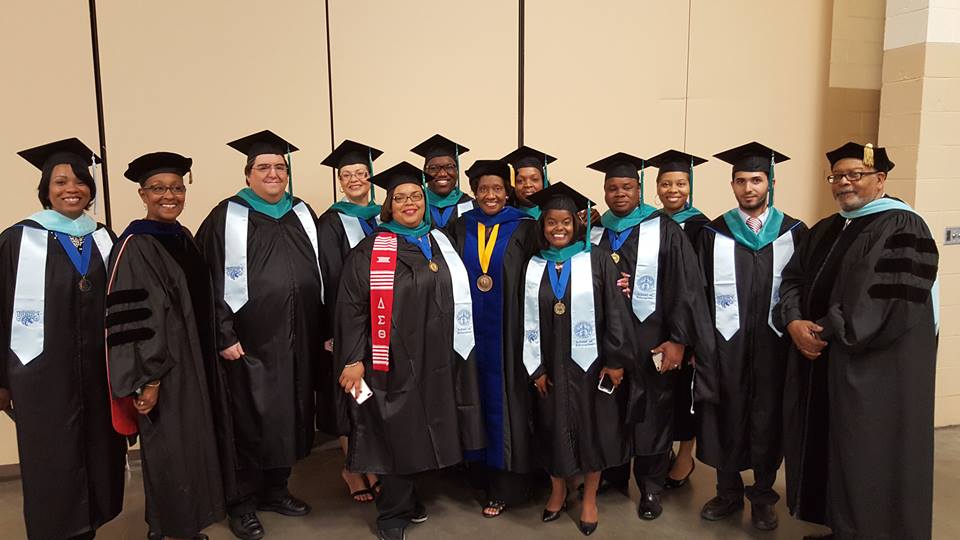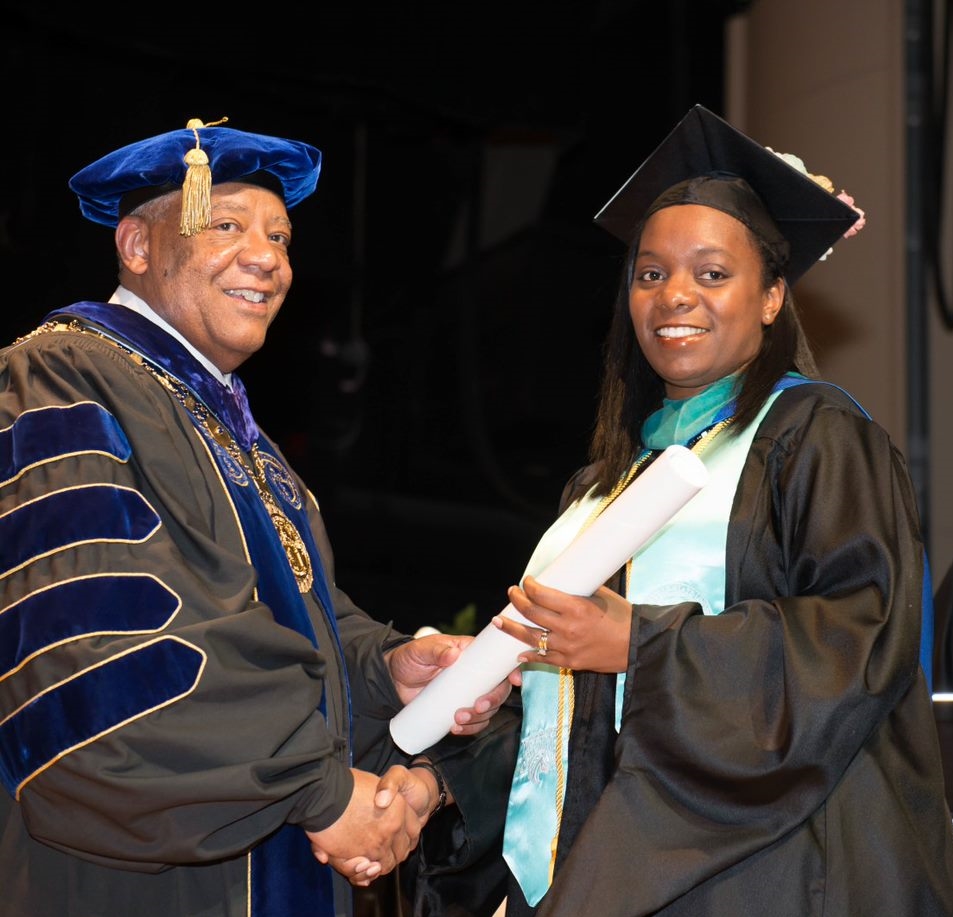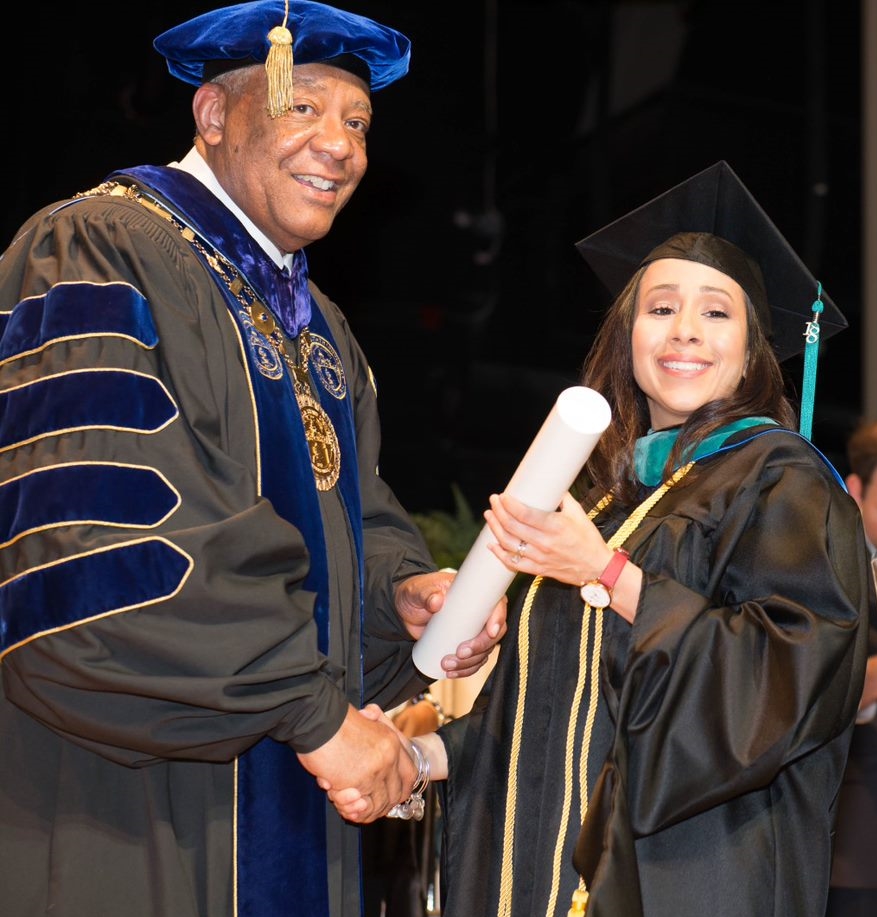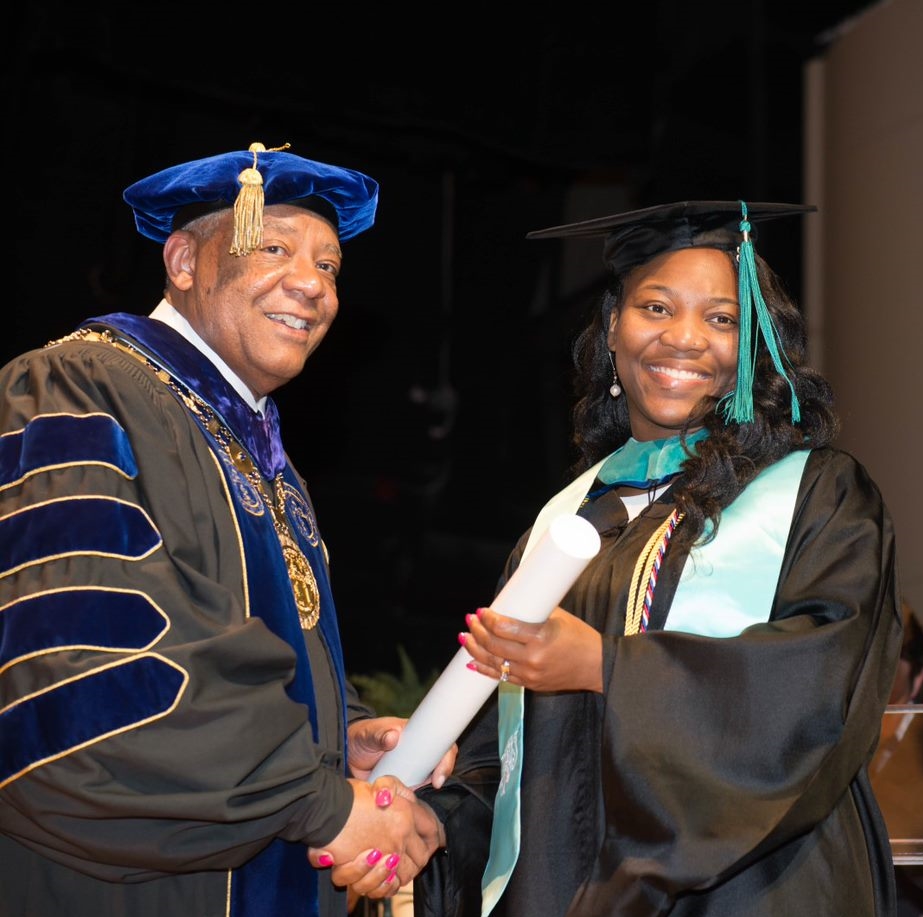Master of School Administration (M.S.A)
Our unique program has produced eight consecutive Principals of the Year in the Cumberland County School District.
The cohort-based, multimodal program requires the successful completion of 42 graduate course credit hours, a comprehensive exam. The program begins each fall and all requirements, including a year-long, full-time internship, are completed in two years. The typical cohort comprises North Carolina Principal Fellows, classroom teachers, and other aspiring principals.
Why Choose Fayetteville State University's M.S.A. program?
The Master of School Administration program at Fayetteville State University with its focus on preparing Transformative School Leaders and Principals is unique. The concept of Transformative Leadership means that candidates matriculating through our program develop a framework to address the most challenging issues facing schools in the 21st century. They learn the leadership and organizational skills to lead in diverse school settings. Through course work that prepares them to understand the sociopolitical context in which schools operate they are equipped with the knowledge to create high achieving learning environments while attending to equity and social justice issues.
Program at a Glance
Admission Term: Fall
Credit Hours: 42 credit hours beyond the Bachelor's
Course Delivery: Hybrid--online, evenings, and weekends
Cohort Size: 10-20 students
Application Deadline: April
What Will You Learn?
1) To articulate a vision of learning through, the use of transformative leadership practices to promote the success of all students.
2) The use of data types such as: student performance reports, teacher and community survey, and state and or local reports for school improvement.
3) Knowledge of in-depth review of the literature relevant to effective organizational change and analysis as a foundation for the development of change strategies.
4) To apply best practices to student learning by understanding the variety of instructional research methodologies and by analyzing the comparable strengths and weaknesses of each method to improve instructional programs.
5) To develop effective instructional programs by improving curricular materials and pedagogy that will enhance student learning.
6) To collaborate with family and community members by supporting the planning and implementation of programs and services for diverse student populations.
7) To act responsibly by making and explaining decisions that promote student success based upon ethical and legal principles, professional integrity, and fairness.
8) The knowledge, skills, and dispositions to interact with school or central office staff, students, parents, and community leaders through an internship experience.
9) To critique the organizational and systemic ways that schools may produce inequitable schooling conditions for historically marginalized students.
Admission to Candidacy
Admission to Candidacy for a Master's Degree
Comprehensive Examination Application for Master's Degree Applicants
Comp Exam Application








